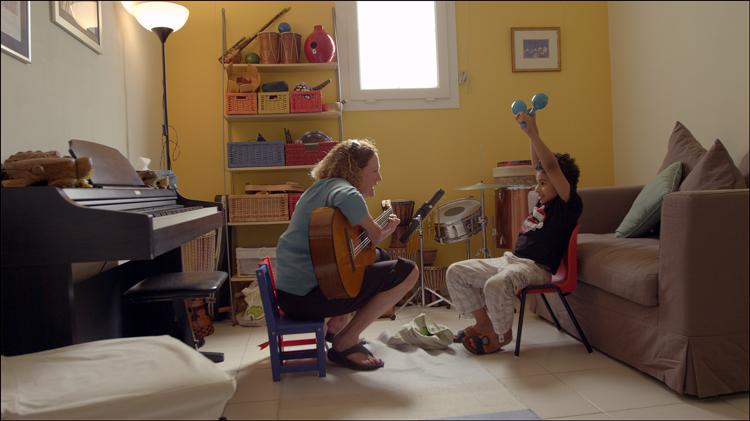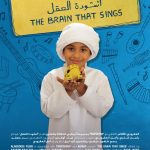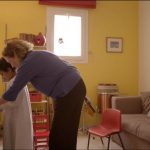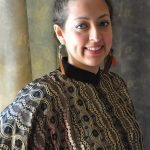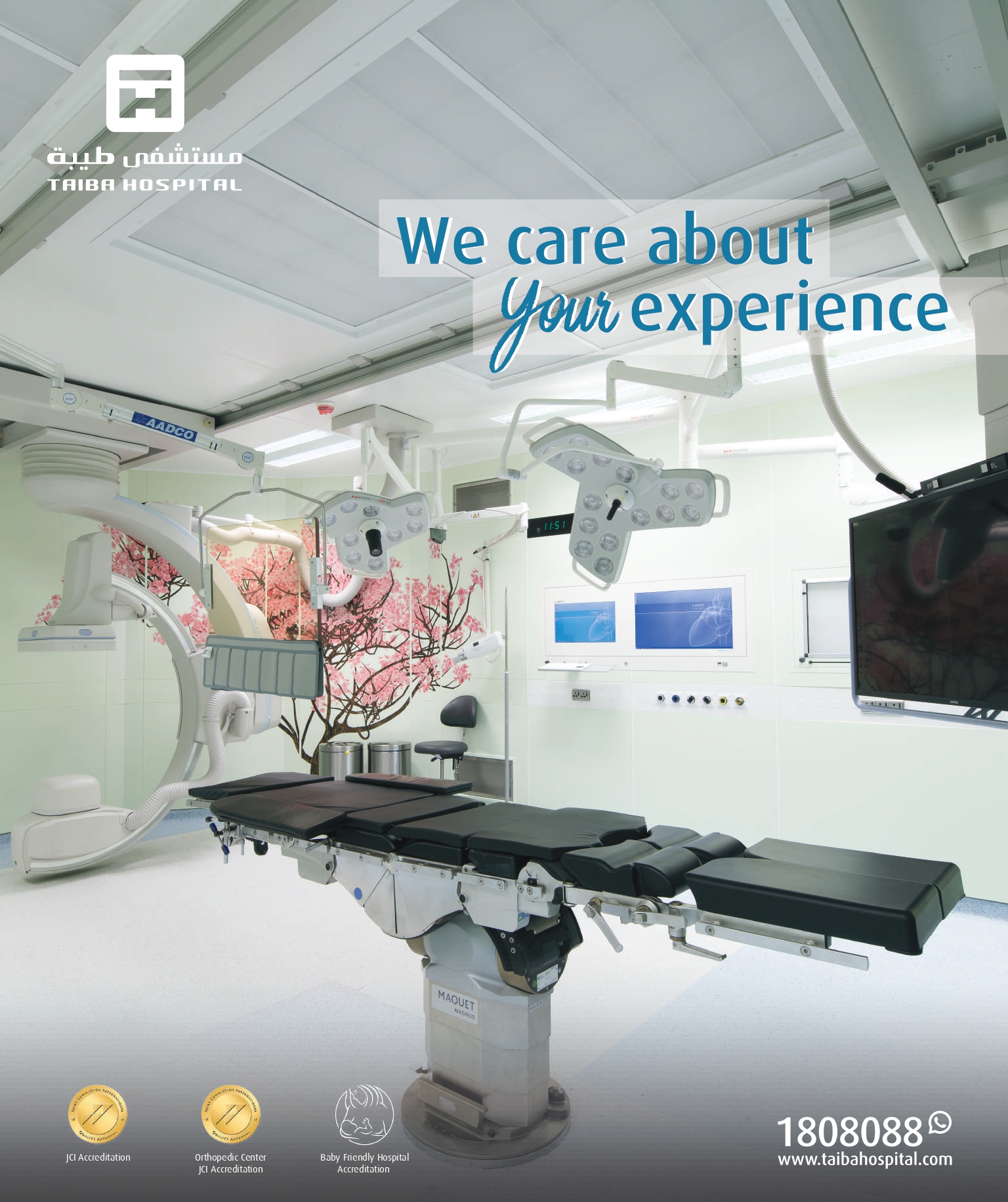Even though she first fell in love with acting, Amal Al-Agroobi’s passion for filmmaking was inevitable. Her life presented her with many opportunities in front of the camera, yet her calling to make films became stronger, until a serendipitous opportunity presented itself.
Amal once watched a TED talk online about Tala Badri, a woman whose autistic daughter Sara benefited from music therapy. Tala’s daughter went from an angry ball of energy to an easy-going, friendly, bubbly little girl in three months thanks to Marion, her Music Therapist’s teachings. After watching the film, Amal then received an email which came from a mother asking if someone could make a film about her son. From there, Amal met Khalifa, and then Mohammed—and everything fell into place. This meeting spurred her new feature documentary The Brain That Sings, which answers many unanswered questions about autism in the Arab World, and went on to win ‘The People’s Choice Award’ at the Dubai International Film Festival in 2013. It follows the lives of these autistic boys living in the UAE as they go through 3 months of treatment through music therapy. Amal speaks to bazaar about her filmmaking journey so far, and what she aims to accomplish through her films.
What sparked your love for film?
Through acting. This was my first love and I always wanted to be in front of the camera. Being an “actress” initially gave me a great advantage as a director. A great director must know every aspect of their craft. I used to go to the cinema every week with my family and in between we would watch movies too. It was just a big part of my life and my passion and when you have a passion, it’s really hard to get it out of your system. My first film Half Emirati is about mixed-race/heritage/parentage kids in the UAE. It became the most watched film at Dubai Film Festival 2012. But it took me a while to get to the stage where I could do something about it. When you’re learning, you just don’t know where to go or what to do- but you have to just do it!
You originally studied Biomedical Sciences and Neurosciences, why the change of heart?
I wouldn’t call it a change of heart because my heart was always set on the film industry. Unfortunately in the Arab world we don’t really have much leeway in terms of what we can do and parents hope to exert as much influence on their children as possible. I don’t regret it though…it’s just how life panned out. At the University of Durham I pursued a degree in Biomedical Sciences and then continued with a masters degree in Neurosciences at University College London where my research was focused on Parkinson’s disease. During my time in London, I immersed myself in a few short film production courses. But there comes a time where you feel like enough is enough. No amount of money, no opportunity, no environment, no person can stop you from doing what you want to do. You realize life is short and you become stronger and take your life into your own hands. I did that.
Why autism specifically?
Most people think it’s because it’s a part of my life, but strangely enough, I don’t know anyone with autism, though many people are affected worldwide. Music has always been close to my heart. I play an instrument and believe it’s a great outlet for expression. Coupled with my studies of the brain, it became basically research to test the effects of music therapy on the brain. In autism, we really don’t know how the brain works. All I know is that the idea came to me and when you’re given an opportunity to make a film like this that will influence and help people…you should take it.
Please describe the concepts behind using aflamnah.com and crowd-funding to help make this film The Brain That Sings?
I met Vida Rizq and her husband Lotfi Bencheikh and their team at the aflamnah launch party in the UAE. It was mid 2012 and they had introduced the first crowd-funding site of its kind in the region. They introduced the project through a short promotional video, which we placed online, and then asked others to support the film by pledging certain amounts of money dubbed “contributions.” Depending on the amount you contributed, you would get certain rewards. For instance, $10 would get you special thanks on the Facebook page but $10,000 would ensure your name/logo was on all media collateral, you would get invited to the wrap party and it would earn you an executive producer credit on the film. We raised a whooping $15,000 in the 3-months the video was on the site; mostly from people we didn’t know or never met! Vida and Lotfi were also very supportive. Although the funds didn’t cover the entire project, it was a big help from the community itself. Plus, it helped spread awareness so that people were more inclined to come and watch the film.
Now, for the distribution part of the film, the film was invited onto another crowd-funding site called Zoomaal (zoomaal.com) who match the amount donated in funding. The campaign will be open until the 7th of June and allows us to collect proceeds to tour the country in an autism awareness campaign pertaining to the film. But to be honest, the film is sort of by the people for the people, and the community cares more about it than I think some companies would, This way it gives them a chance to be part of it and of course get rewards that perhaps wouldn’t otherwise be on offer. For instance, I’m offering a chance to make a film with me as well as a role in my upcoming film – not many people know that I have some major celebrities attached to the project so a chance to work with them is incredible. The campaign is supposed to inspire and help women entrepreneurs through additional support.
What do you hope to achieve from this documentary? Will there be a follow up?
Simply awareness, understanding and acceptance. I’m really passionate about helping people. When I say ‘helping people,’ I mean the betterment of humanity as a whole. I believe I am a creative individual who, through the use of film, can share ideas that may inspire people to do greater things, and this is also how audiences in the Arab world prefer their content. If you affect one person through your work, or you can help a single person understand themselves, or a topic, better, then you are adding positively to this world. As for a follow up – no not really. I’m a filmmaker with an interest in social topics so after this I bounce on to the next topic or next film. I always say it’s the families who will continue to live on but then I’ve left something for them as a gift that they can use to help make life easier for themselves and their children.
What do you aim to accomplish in the future?
I want to make as many films as I can and establish myself as a filmmaker. I have another documentary that I’m working on already. I’m still trying to find my feet and my place in the world of film and I can only do that by challenging and pushing myself to try new and different things. So far I’ve done a web series, documentaries (both short and feature), corporate work and TV…now all that’s left is animation and narrative. I’ll get there. I just have so many ideas that I need to stop myself and focus on one.
Is there anything you’d like to tell the filmmakers of the future?
In the film industry you need to be resilient. You will go through periods where you have no jobs at all and sometimes too many that you can’t choose. Always focus on building yourself and of course, it’s not about what you know as much as who you know. I’m a firm believer in passion and ambition. If film is really a part of who you are and you exhaust yourself on a film and are ready to do it all over again then you know you’re in the right place. Ridley Scott once said and I quote, “If you want to be a filmmaker, nothing should put you off and nothing should put you down”. You hear that? NOTHING. Now go shoot something.
In order to help support the film you can visit www.zoomaal.com/p/bts. For more information about Amal Al-Agroobi and her documentary, check out www.thebrainthatsings.com.



